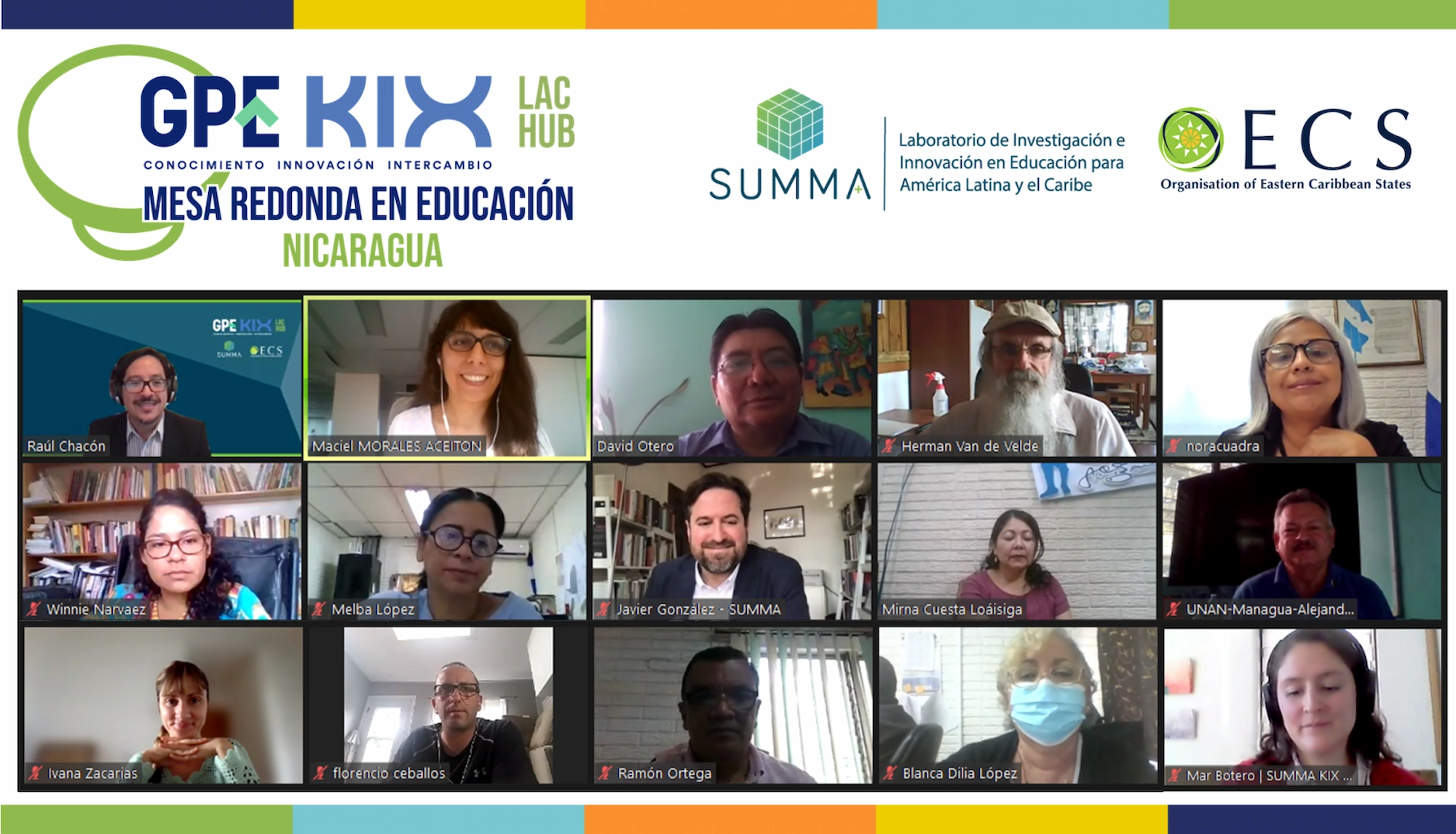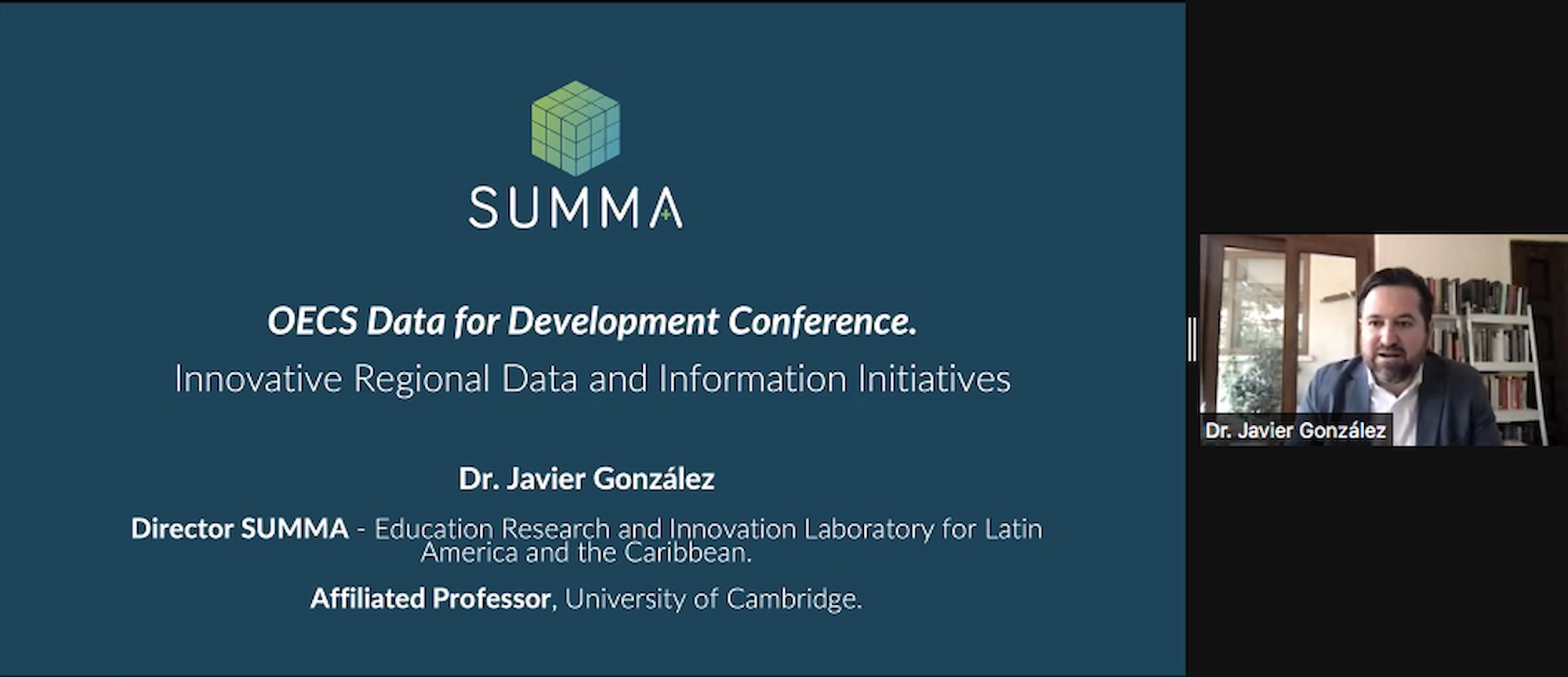Roundtable discussion on the challenges and opportunities facing the education system in Guatemala
7 de March de 2023

Share
SUMMA and OECS, with the support of IDRC, organized the ninth Education Working Group, this time with representatives from the education sector and representatives from KIX LAC in Guatemala, where the report Educational Challenges in Central America and the Caribbean: Guatemala, carried out by researcher Mariela Zelada for KIX LAC, was presented.
Raul Chacón, director of KIX LAC, welcomed and expressed special thanks to the participants, highlighting the importance of coordinating efforts and creating synergy among the various actors in the field of education in order to build on a shared vision and achieve long-term consensus.
The panel was made up of Annelisse Lainfiesta, director of Curriculum at the Guatemalan Ministry of Education; Cristiana de Amenábar from the Carlos F. Novella Foundation; Rodrigo Hernández, representative of the Guatemalan Education Workers’ Union; Lucrecia Méndez, representative of Save the Children and member of the local education group; Javier González, director of SUMMA; Raúl Chacón, director of KIX LAC; and Maciel Morales Aceitón, researcher at KIX LAC.
González expressed his gratitude for the joint work being carried out and assured that “this research will allow us to identify the problems and, therefore, the priorities, so that we can then move on to the stage of thinking about how we can solve them. We need concrete solutions, and through a relationship of trust and joint work with the Ministry of Education, civil society, and academia, we will be able to come up with real solutions to the educational problems in Guatemala.”
The report Educational Challenges in Central America and the Caribbean: Guatemala addresses the main aspects and relevant challenges of the Guatemalan education system, such as the current situation of teachers and students, the formulation of education policy, the main actors in the system, funding and resource allocation, curriculum, accountability, and educational innovation, as well as some reflections on the prioritization of bilingual education, gender focus, citizenship training, and sex education.
In this regard, the document suggests increasing the efficient use of resources to ensure that they are used to improve conditions for students and teachers in public schools and institutes, through school textbooks, innovation, teaching materials, equipment, and infrastructure for connectivity, among other needs.
In terms of curricular aspects, the report suggests continuing to work toward inclusive education and approaches related to gender equality. Addressing these issues in schools is essential for building a more active and fulfilled citizenry, as well as developing more equitable societies in line with current times.
Subsequently, the representatives assessed the work done to gain an in-depth understanding of the current situation of education in Guatemala and provided comments, statistical data, and specific observations to be incorporated, updated, and expanded in the final document.
Finally, Florencio Ceballos, senior program specialist at IDRC, thanked the Guatemalan representatives at KIX LAC for their active participation and involvement in reviewing the document, and assured them that “teamwork and consensus are what will enable the development of better education policies and strategies.”





















































































































